The International Chinese Language Day "Soaring Chinese Elegance" Chinese Singing Competition
Transmitting culture through singing and building bridges with music
Grain rain is beginning to clear up, and the spring atmosphere is strong. On April 29th, the International Chinese Language Day “Soaring Chinese Elegance” Chinese Singing Competition, hosted by the Tourism Confucius Classroom at UDG, successfully concluded at the Entrepreneurial Nest of UDG in Montenegro. “Language is a flowing river, music is a leaping star." This event, celebrating the United Nations International Chinese Language Day, attracted teachers and students from multiple schools to participate. Through Chinese song performances, traditional art performances, and cultural lectures, it presented a cultural feast that transcends language and national borders to the audience.
More than 100 people attended the event, including Su Tong, Second Secretary of the Chinese Embassy in Montenegro, representatives of local Chinese enterprises in Montenegro, Zhao Zhiyi, Director of the Montenegrin Office of the European Times, Gao Qinglong, Chinese Director and all teachers of the Confucius Institute at UCG, Dr. Marija Orlandić, the Dean of Chinese Studies, Fu Lili, Chinese Director of the Tourism Confucius Classroom, Tamara Radinović, Director the Tourism Confucius Classroom, teachers and students at UDG .
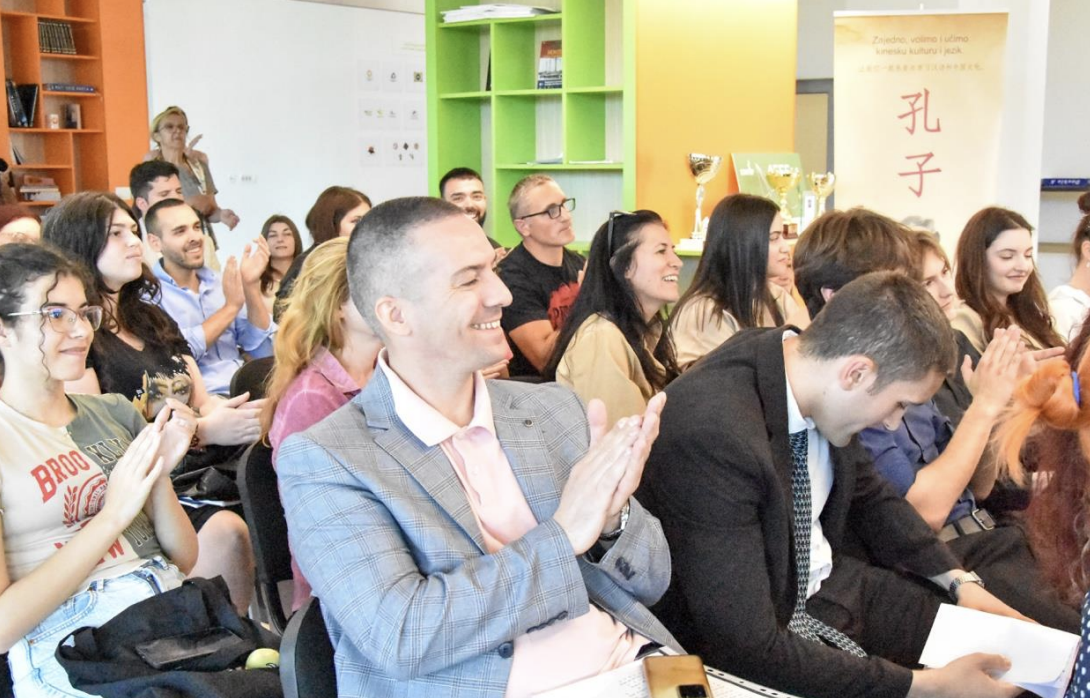
Using songs as a medium sing the charm of Chinese language
At the opening ceremony of the event, the host Marko Miler introduced the cultural significance of International Chinese Language Day: the festival is scheduled for the "Grain Rain" solar term on April 20th every year, which not only commemorates the "ancestor of Chinese characters" Cangjie, but also highlights the deep connection between Chinese language and natural time sequence.
Dr. Marija Orlandić, Dean of the Chinese Studies, stated in her speech that the University of Donja Gorica proudly celebrates the International Chinese Language Day, honoring the linguistic and cultural richness that the Chinese language embodies. This day holds special significance at UDG, as it symbolizes our strong and long-standing cooperation with China – through partnerships with over 30 Chinese universities, the establishment of the Confucius Classroom, and joint projects in the fields of education, science, and innovation. We are especially proud of our students, whose knowledge, interest, and dedication reaffirm the importance of these initiatives every day. Their success and openness toward Chinese culture reflect UDG’s vision – to build bridges between nations and open the doors to the future through education.
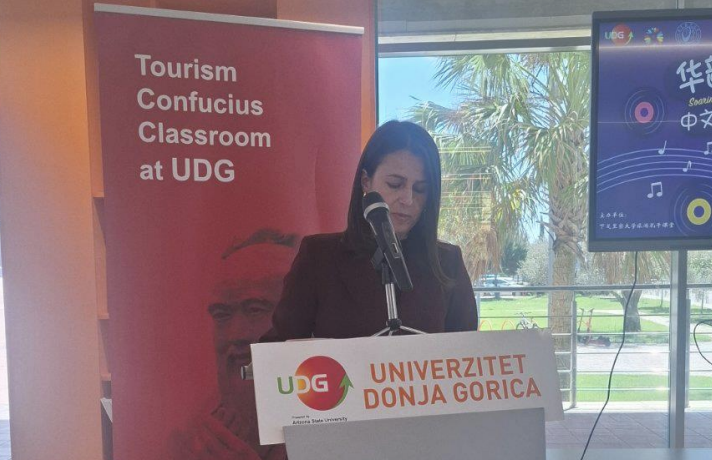
In the subsequent Chinese singing competition, 12 finalists took the stage one by one. They included not only students from primary, secondary, and tertiary schools, but also professors from universities. They were both Chinese language learners and young people who had never been exposed to Chinese but had a deep affection for China. They conveyed their understanding and love for Chinese culture through their singing. The classic golden song 'The Moon Represents My Heart', performed by Elizaveta Vorobeva, is like moonlight pouring down, gently filling the entire room with time; Ajša Rekovi ć's melodious voice fully interprets the profound lovesickness of the ancient song "everlasting longing for each other"; The fusion of Chinese and Western elements in the duet "Los Angeles" by Petra Knežević and Marija Jovanović ignited the enthusiasm of the entire audience; The graceful opera style of "The Silk Thread Play" sings the love story of puppets as a lament of the world; A song expressing gratitude called "Listen to Me Say Thank You" conveys gratitude to the people around me through singing; The nursery rhyme 'Little Star' has been interpreted by multiple groups of contestants in different styles, making people feel as if they have regained their childlike innocence; The resounding passion of "The Lone Warrior", the inspiring spirit of "Invisible Wings", and the warm storytelling of "By Your Side" allow the audience to touch the diverse pulse of Chinese culture through the ups and downs of musical notes; With the melody of the Chinese version of 'Bella Ciao' playing, it resonated even more with the audience present. The contestants won rounds of applause from the audience with their superb singing skills, standard Chinese pronunciation, and vivid stage performances.






Cultural integration, sharing the charm of the East
During the break, the event specially arranged rich cultural experience segments. Shi Xinwei, a Chinese teacher of the Tourism Confucius Classroom, showcased the ethereal beauty of the traditional Chinese instrument Guzheng with the melodious melody of "Fishing Boat Singing Tonight" and the classic melody of "Bella Ciao".
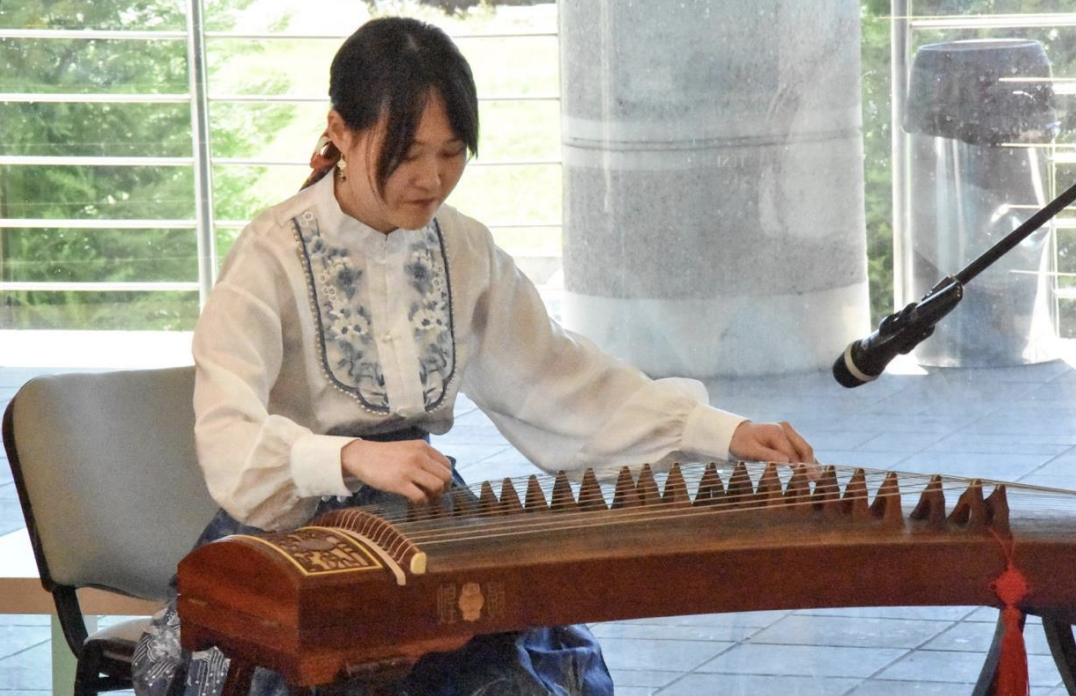
Subsequently, The Director Fu Lili gave a brief lecture on the theme of "The Four Great Classical Novels of China". She cited Marco Polo's classic statement that "Chinese music is not just notes, but also the breath of history, the pulse of poetry, and the echo of dynasties," as well as Lin Yutang's classic discourse that "Chinese characters are frozen music, and music is liquid poetry in Chinese." Through the Four Great Classical Novels and their classic TV drama theme songs, teachers and students were able to appreciate the charm of classic Chinese songs and feel the perfect integration of Chinese poetry rhythm and music.
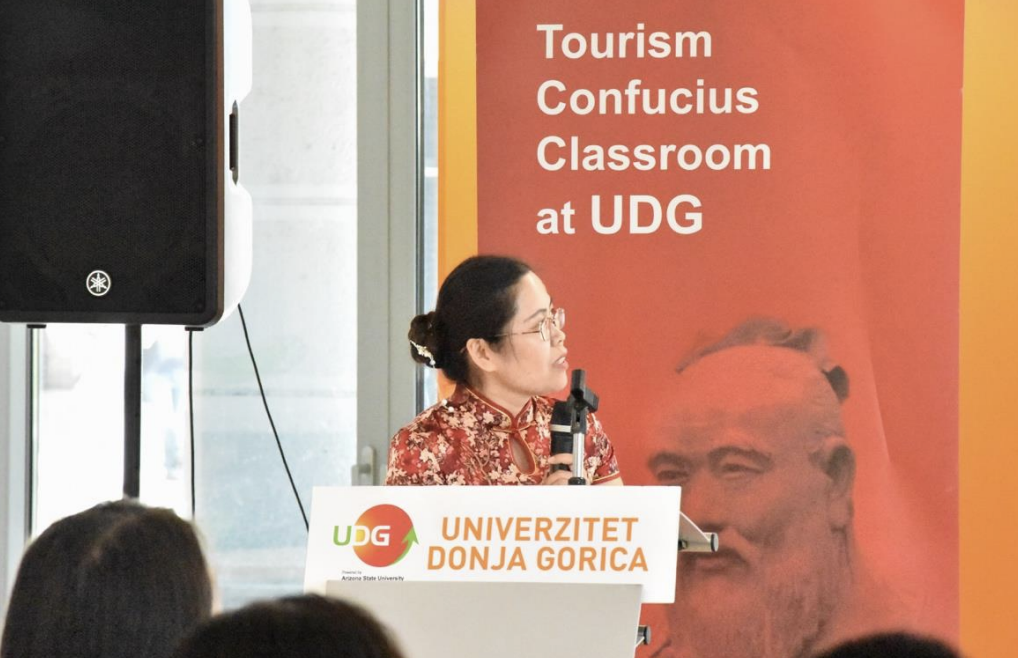
Arslan Vlahovliak, a representative of Tourism Confucius Classroom students, shared his winter camp experience in China, bringing vivid cultural exchange stories to the audience and allowing them to experience the profound significance of cross-cultural communication.
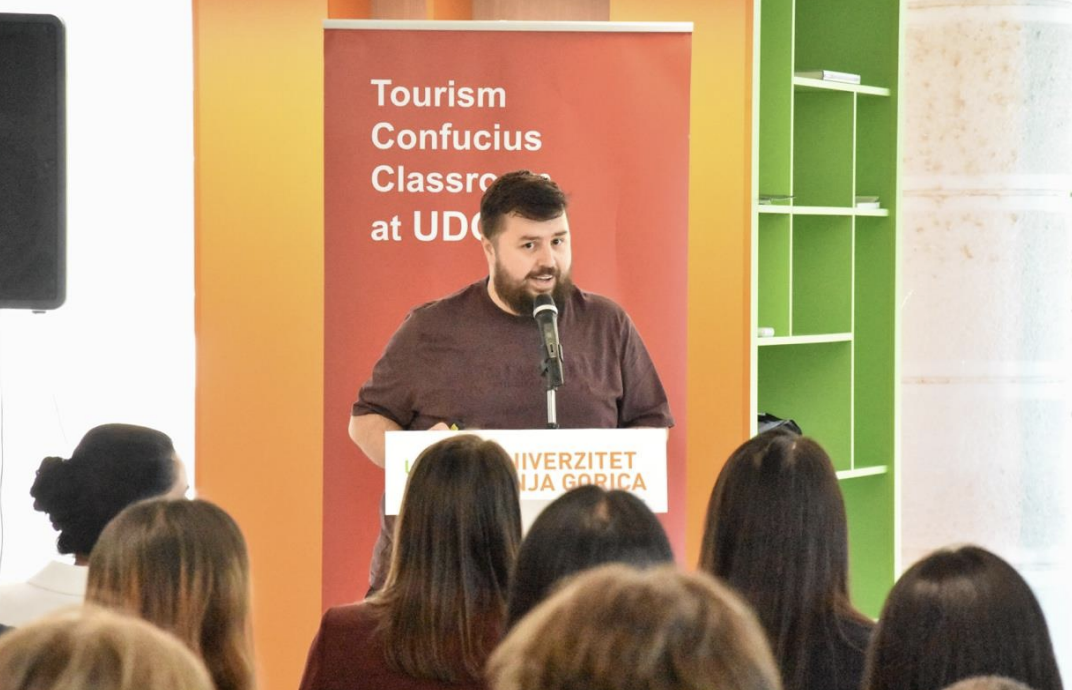
Finally, after strict evaluation by the judging panel from multiple dimensions such as singing skills, Chinese pronunciation, and stage performance, the competition results were officially announced. The Director Tamara Radinović announced the list of winners on site: Ajša Reković won first place with her delicate and moving performance, Elizaveta Vorobeva won second place with her sincere and touching singing voice, and Petra Knežević and Marija Jovanović collaborated and performed well, winning third place. The remaining contestants were awarded the Excellence Award in recognition of their passion for learning Chinese and their outstanding performance on stage.
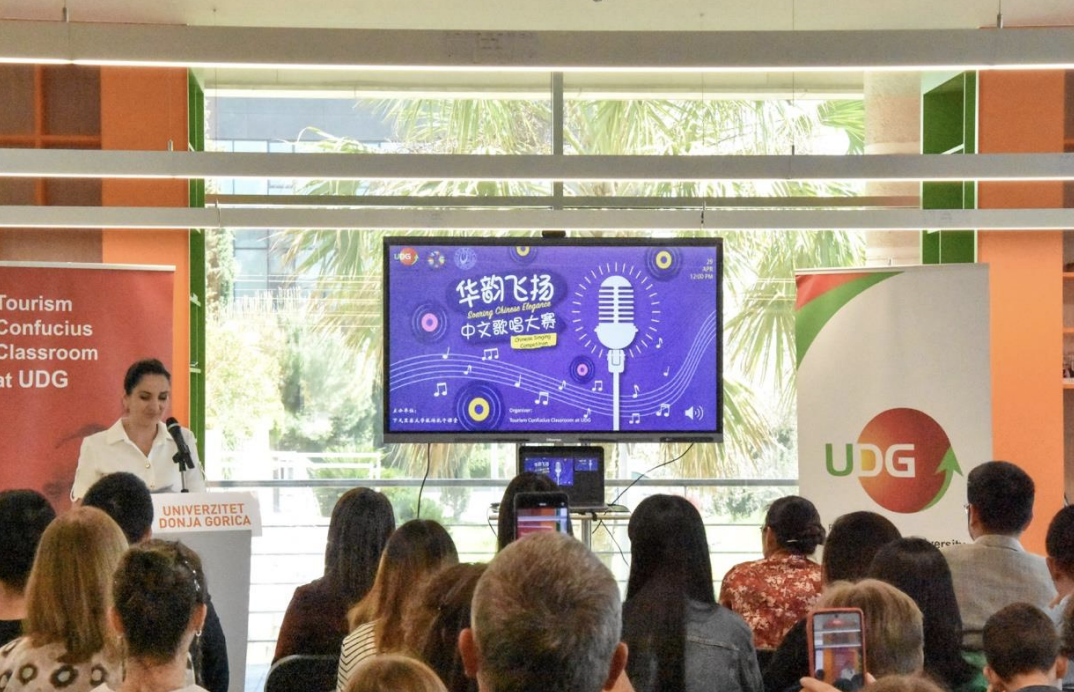
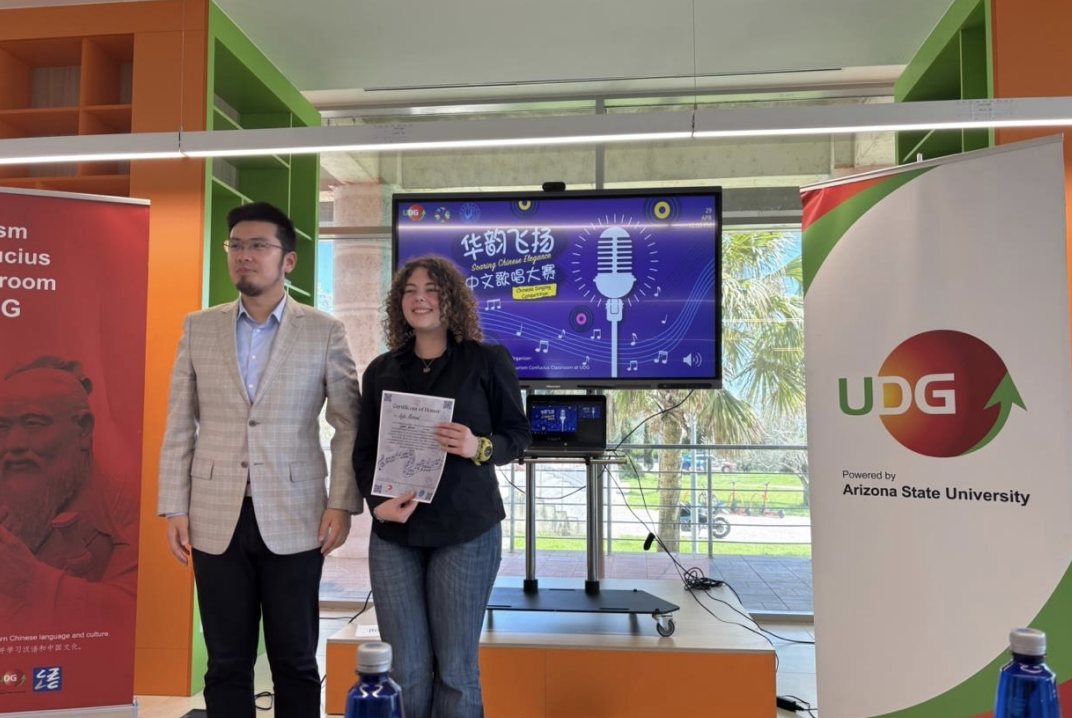
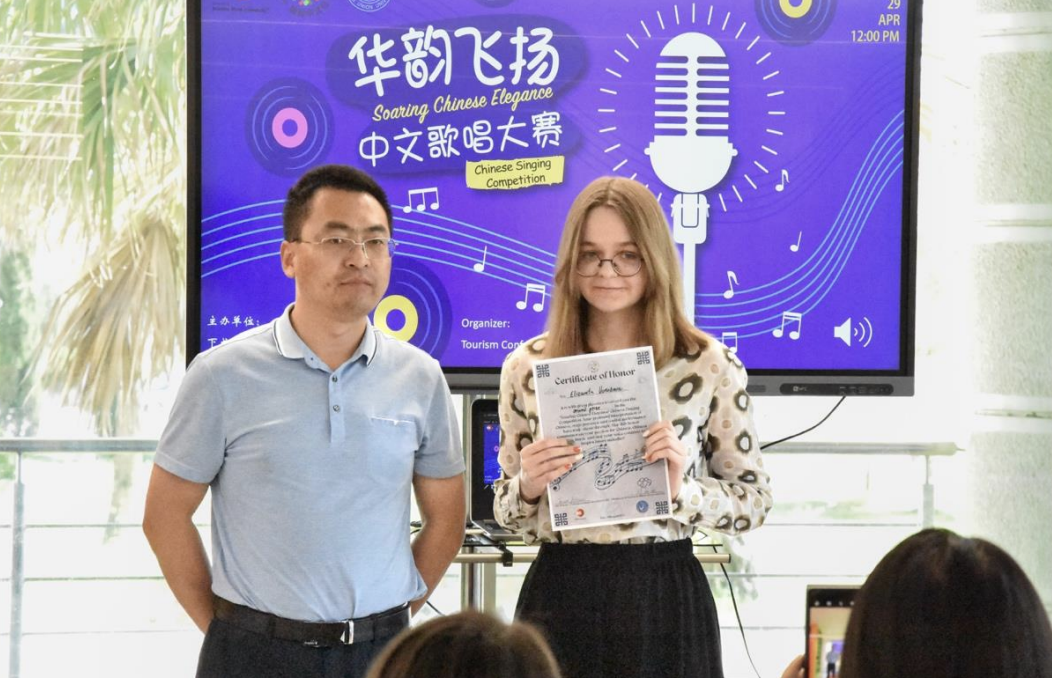
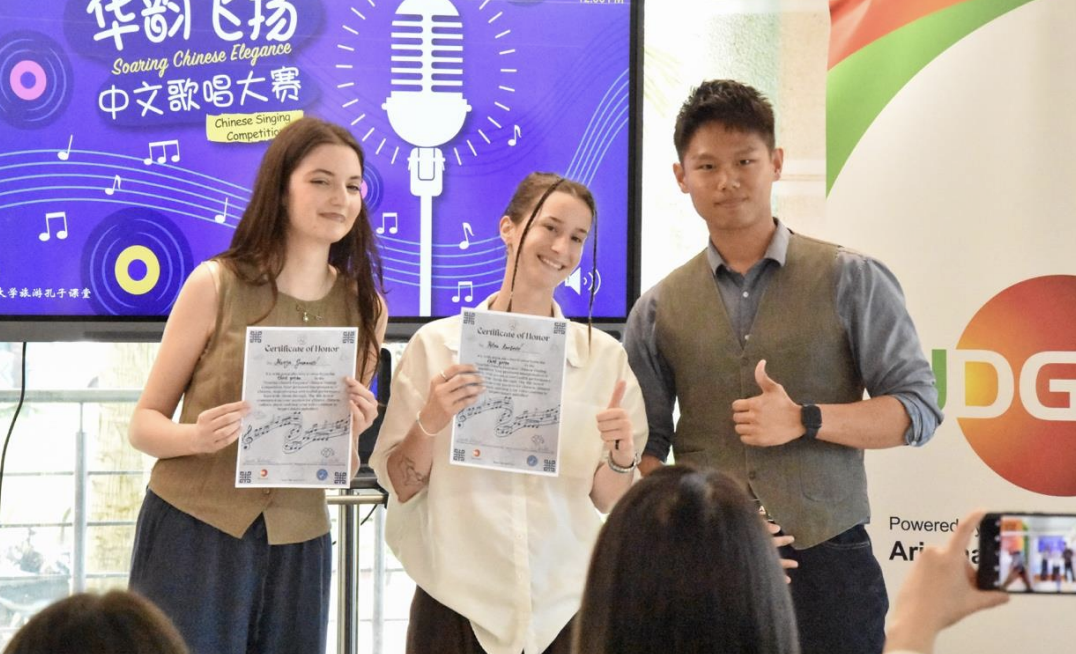
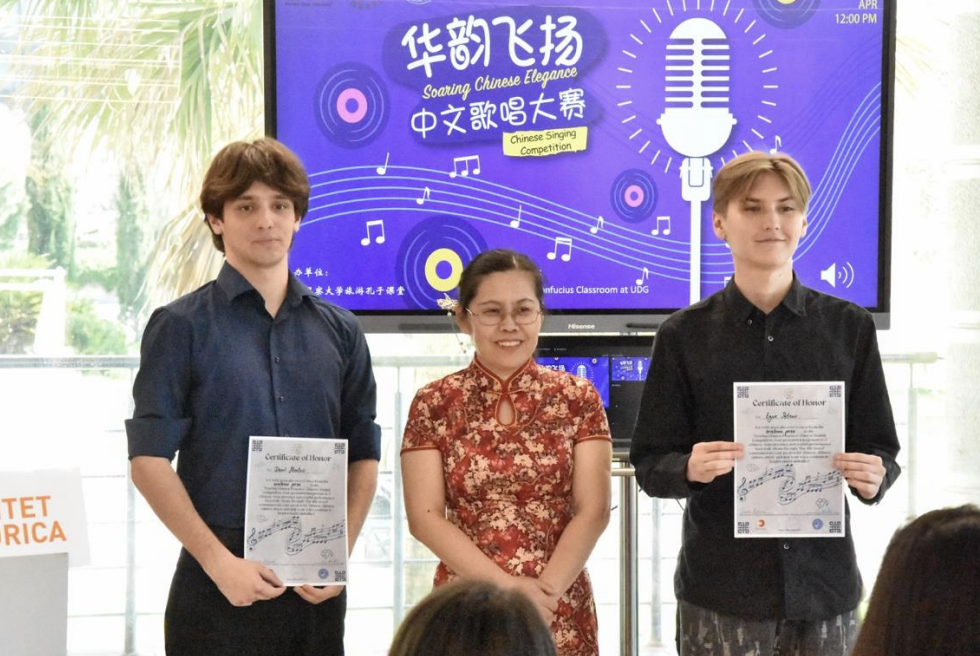
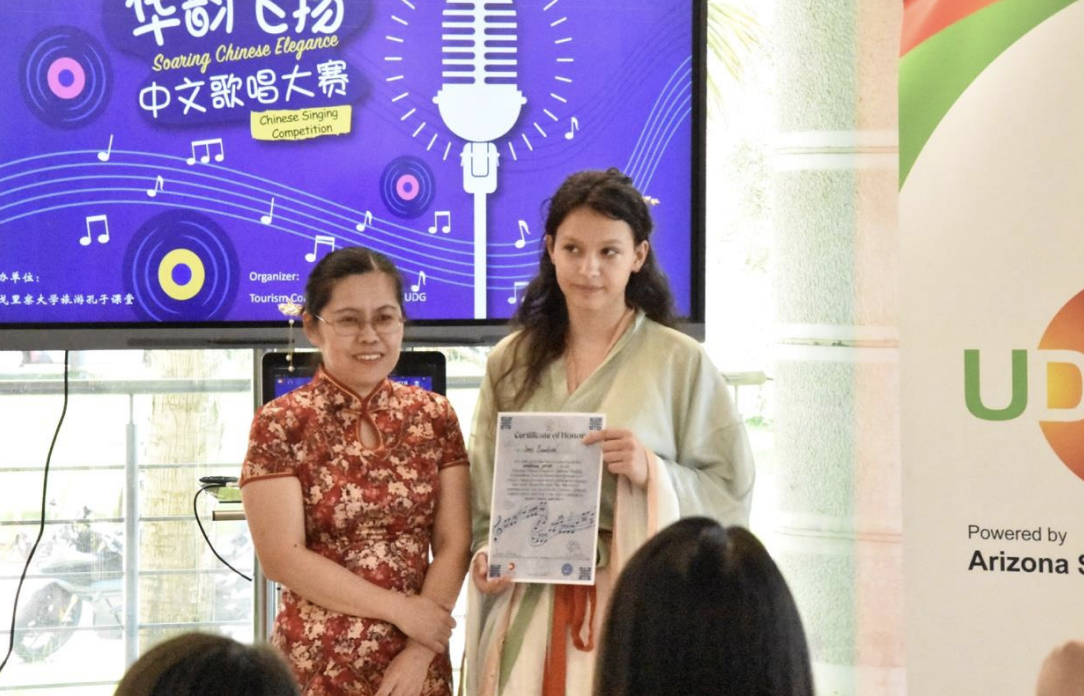
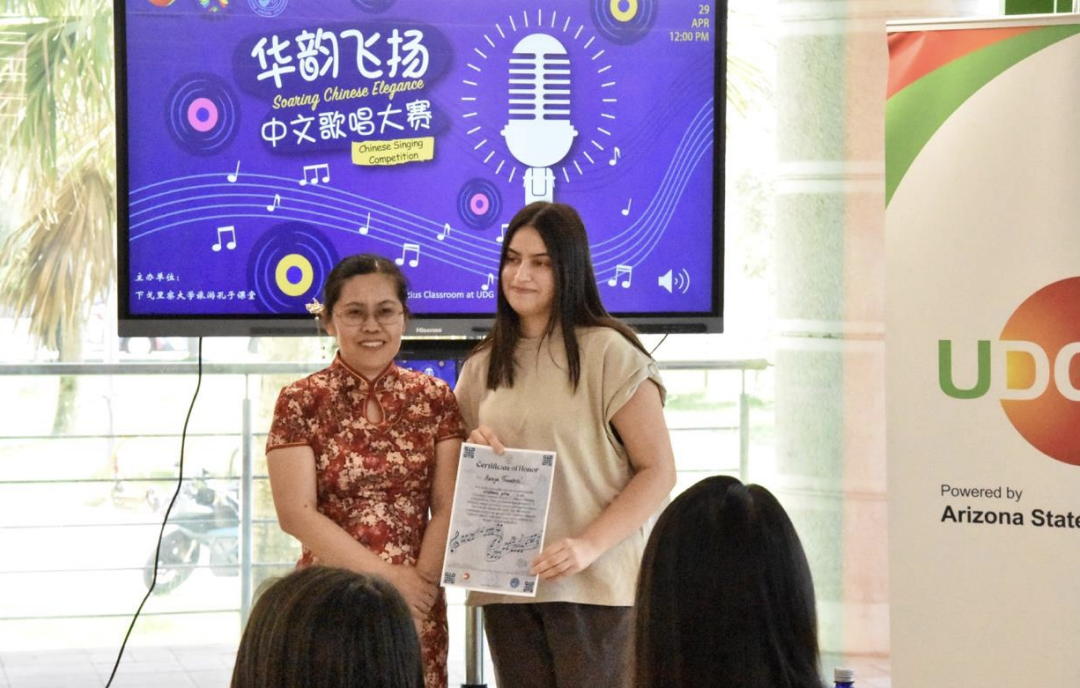
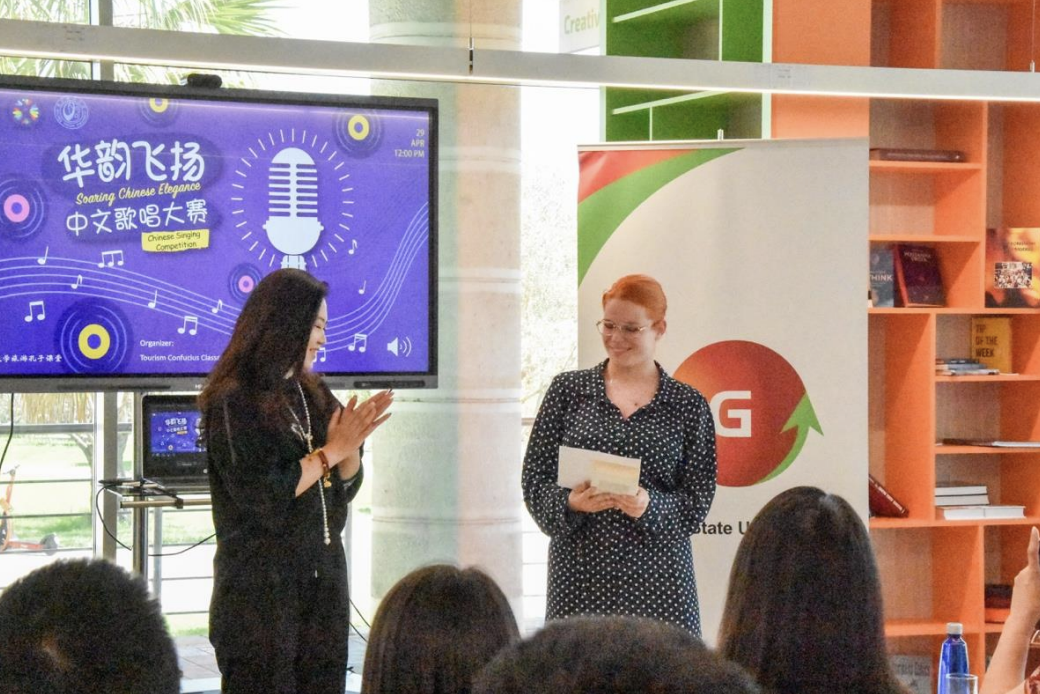
The event came to a successful conclusion with relaxed communication and food sharing. The organizer expressed the hope that through such cultural activities, the development of Chinese education and the exchange and mutual learning of Chinese and foreign cultures can be further promoted.
Conveying emotions through sound, connecting the world through music This " Soaring Chinese Elegance" Chinese singing competition is not only a music competition, but also a cultural dialogue. The event showcases the beauty of Chinese rhythm and the profoundness of Chinese culture through various forms, providing an important platform for promoting cultural exchanges between China and Montenegro and enhancing international friendship. As the host said, "Language may have borders, but music and emotions are always connected." In the future, the Tourism Confucius Classroom at UDG will continue to use language as a bridge and culture as a boat to promote Chinese education in Montenegro.
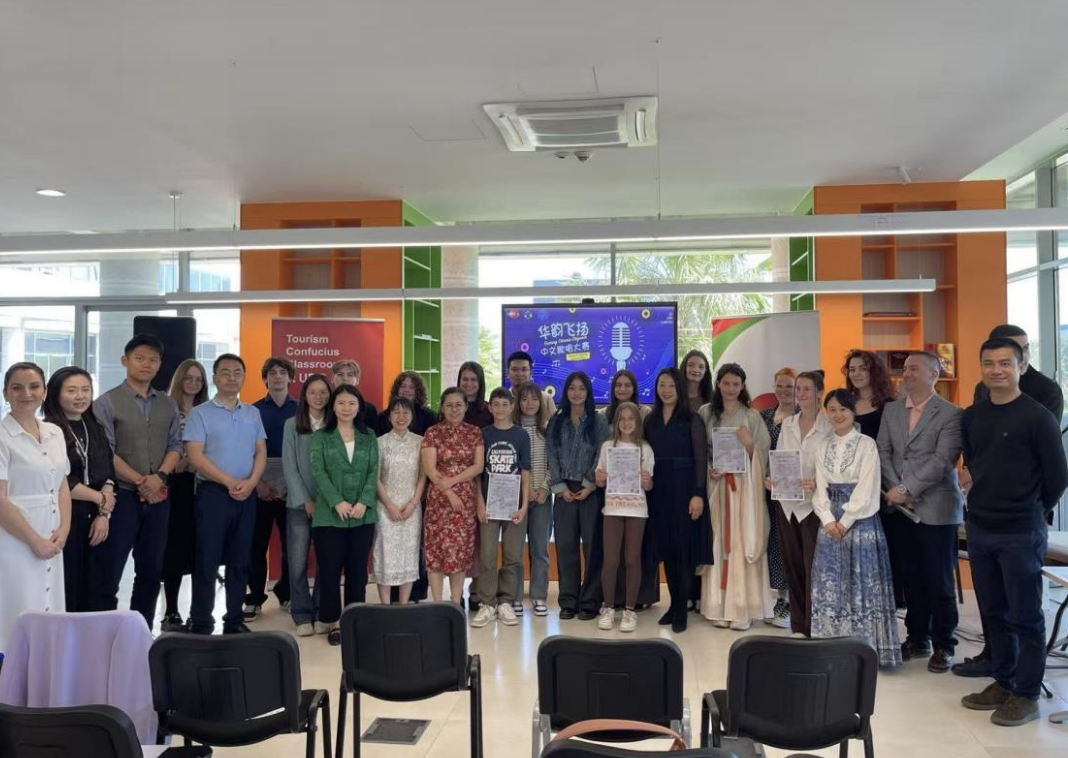
Categories
Others







